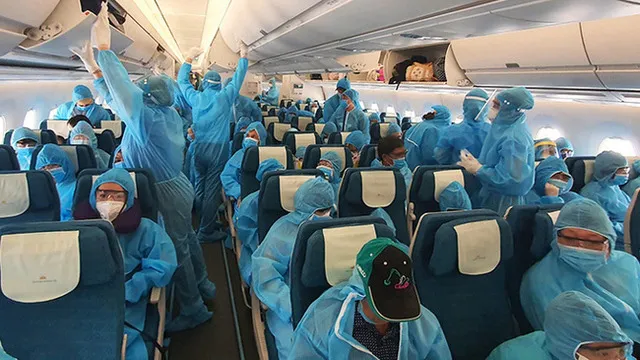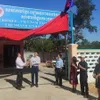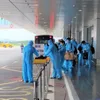Expectation for future and immediate mission

Epidemic prevention and control activities have been implemented synchronously with the participation of the relevant agencies and authorities at all levels. The number of just over 1,400 COVID-19 patients proves these efforts. All citizens and visitors from abroad were given health checks and placed under quarantine as per regulations; therefore, all new cases were detected, localised and thoroughly handled so that the epidemic was not able to spread to the community.
Vietnam has also made positive contributions to the international community in response to the pandemic through its sharing of experiences related to pandemic prevention and control and its participation in the research for and production chain of preventive vaccines. The country has now four producers participating in research and production of COVID-19 vaccines, including a vaccine officially tested on December 17.
In fact, this is only the first out of three phases of the COVID-19 vaccine clinical trial programme in Vietnam. However, the official vaccine trial run on humans marks a scientific success as well as a breakthrough in the fight against the epidemic. If it is successful, it will be an important “weapon” to respond to the pandemic raging in many countries around the world, causing around 75 million infections and 1.6 million deaths. We can fully expect this to be a success so that in the near future (the end of 2021) Vietnam will have a vaccine against COVID-19 which produced domestically, contributing to saving foreign currency. It is also expected to be exported.
With a path that cannot be shortened, the COVID-19 vaccine is the story of the future. The immediate mission is to pay great attention to controlling the epidemic situation in the country, especially during the peak period of its spread in winter. The lessons on the COVID-19 outbreak in Da Nang and Ho Chi Minh City show that anything can happen. Therefore, all ministries, agencies and localities should strengthen inspection and supervision in their respective fields of management as well as continuing to implement strict measures to manage border gates and people entering Vietnam.
In the context that a large number of Vietnamese citizens have returned home from epidemic areas, the source of infection from illegal immigration is the most dangerous. Accordingly, flights bringing citizens home should be absolutely safe. In addition, citizens should be given medical check-ups and put under quarantine in line with regulations. Functional agencies should continue to review the regulations and processes of their implementation as well as making strong sanctions to strictly handle violations on COVID-19 prevention and control.
According to the assessment of the National Steering Committee for COVID-19 prevention and control, all measures are fully in place and authorities at all levels have been trained and thoroughly grasp the task helping them be more responsible and proactive.
Epidemiological experts warn that winter is the most favourable time for respiratory disease outbreaks. Symptoms of some respiratory diseases such as influenza, measles and whooping cough can catch people off guard with COVID-19. Therefore, while waiting for vaccines, people need to continue to implement the preventive measures that were recommended by the specialized agencies and the Ministry of Health as well as the regulations of the Government, the National Steering Committee and local authorities. More than ever, it is necessary to strictly adhere to these measures: wearing face masks, disinfectants, maintaining distance, not gathering in large numbers and making medical declarations. The strict implementation of COVID-19 prevention and control will not only ensure the success of the fight against the dangerous pandemic but also directly support economic development and social stability in the context of the whole world responding to the epidemic.
Tags:





